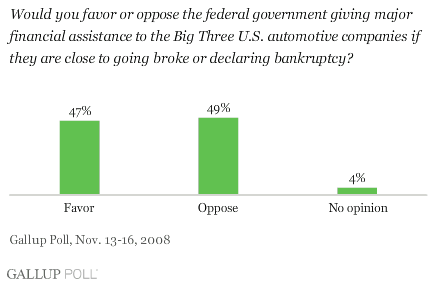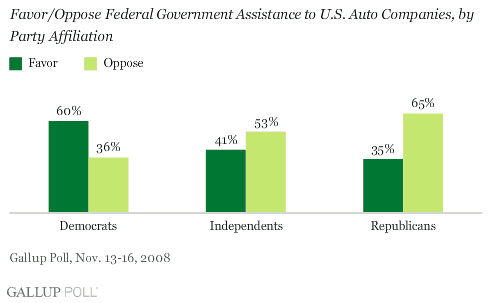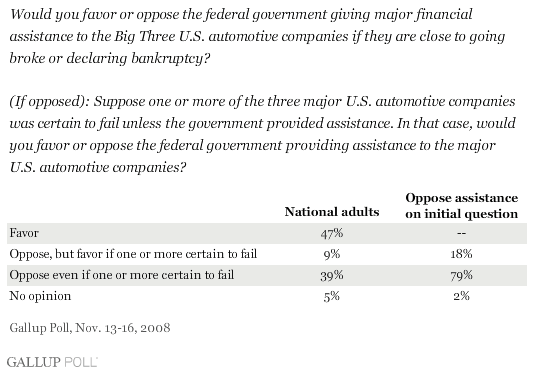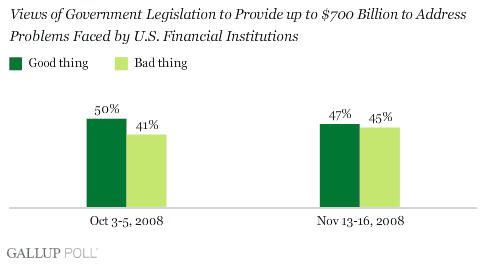PRINCETON, NJ -- The latest Gallup Poll suggests Americans are divided over the federal government's helping the "Big Three" U.S. auto companies stay afloat.

Republicans and Democrats hold opposing views on the matter, with 60% of Democrats in favor of government assistance to the auto companies and 65% of Republicans opposed. Independents are more likely to oppose than to favor government assistance.

The vast majority of those who oppose government help for the auto companies -- 79% (equivalent to 39% of all Americans) -- say in a follow-up question that they would be opposed to the aid even if one or more of the Big Three were certain to fail without it. But 18% (9% of all Americans) would favor assistance under those circumstances, bringing overall support for government aid to the majority level (56%) -- assuming government assistance is the difference between the companies' surviving or going under.

Most key demographic and attitudinal subgroups show majority-level support for government assistance to spare one or more of the auto companies from certain demise, with between 50% and 60% of most groups in favor. Republicans (42%) and self-described conservatives (46%) are the two most notable groups that oppose government assistance even if that meant reducing the "Big Three" by one or more.
The poll was conducted in a political environment in which the government has already taken extraordinary steps to regulate economic activity. Most notably, Congress passed and President Bush signed legislation pledging up to $700 billion earlier this fall to help ease the credit crisis that was putting large U.S. financial institutions in peril. At the time, the public was hardly enthusiastic in its support for this measure, with 50% saying it was a good thing and 41% a bad thing. Now, that support has eroded slightly, with those describing the $700 billion "rescue bill" as a good thing (47%) barely outnumbering those who say it was a bad thing (45%).

So far, the Bush administration has resisted attempts to use some of that $700 billion to help the U.S. automotive companies. Congressional leaders are still trying to persuade the White House to change its mind, but Congress is also moving forward with plans to consider legislation this week to bring it up as a separate measure, though it is far from certain to pass.
Survey Methods
Results are based on telephone interviews with 1,009 national adults, aged 18 and older, conducted Nov. 13-16, 2008. For results based on the total sample of national adults, one can say with 95% confidence that the maximum margin of sampling error is ±3 percentage points.
Interviews are conducted with respondents on land-line telephones (for respondents with a land-line telephone) and cellular phones (for respondents who are cell-phone only).
In addition to sampling error, question wording and practical difficulties in conducting surveys can introduce error or bias into the findings of public opinion polls.
